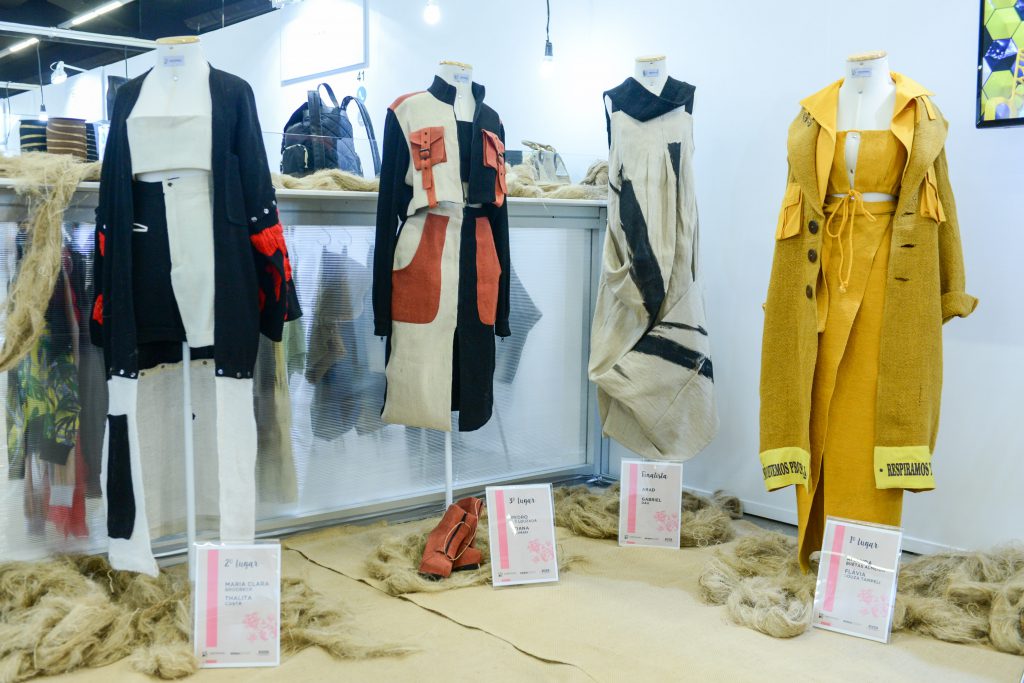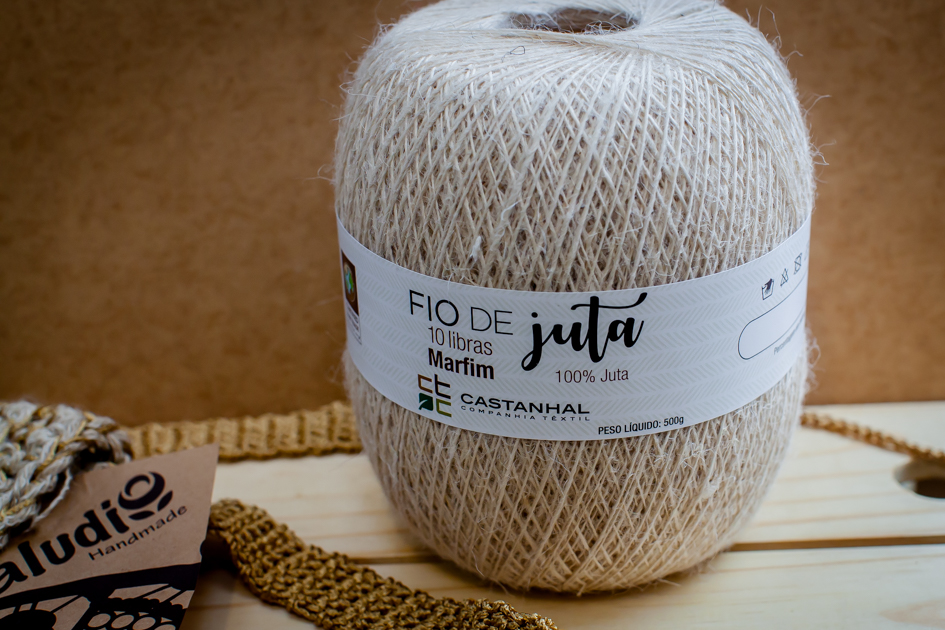Rooted in sustainability, Castanhal stands out in the fashion world

The manufacturer of jute fiber yarns, fabrics and bags Castanhal has bet on innovation and released a fabric designed for the fashion industry. The brand, which is part of Texbrasil (Brazilian Textile and Fashion Industry Internationalization Program) – the result of a partnership between Abit (Brazilian Association of the Textile and Clothing Industry) and Apex-Brasil (Brazilian Export and Investment Promotion Agency) – has developed a product that enables imprinting stamps in jute fibers.
Working for over 50 years in natural fiber production, the company, which is known for its bag sacks, has diversified with one more product focused on the fashion market. The new fabric is made with V7 screen fiber, smoother and tighter, suitable for stamp imprinting.
“The V7 Screen is a release that intends to meet clients’ requirements in the shoe market that seek innovation, sustainable raw materials and concurrently technological”, says Mauricio Vasques, commercial and marketing manager of Castanhal.
The company started its history in the city which the brand borrows its name from, Castanhal, in the Pará state countryside, having the Amazon Rainforest as a home and source of jute cultivation. Therefore, the concept of sustainability was born along with the brand: jute fiber is cultivated by thousand riverside families, and its planting is carried out in the meadows of the main forest’s rivers, such as Amazonas and Solimões, without the need of fires or deforesting. Moreover, the cultivation waste is 100% absorbed by nature.
Beyond bag sacks

During a large part of its trajectory, the company’s main business was in bag sacks, being the sole national manufacturer to address the coffee industry. By extending the concept of sustainability to other areas of the textile industry, Castanhal has decided to expand its partnerships beyond the grain storage and transportation business.
In 2019, the company partnered with the stylist Flávia Aranha for creating a collection that was displayed at São Paulo Fashion Week. At the time, the designer developed pieces by using two Castanhal jute screens, traditionally used in other sectors: Arraiolo, aimed at carpet making and decoration items, and I-33, used in decoration, purses and belts.
“The result from this experiment carried out by Flávia Aranha, who gave a new light touch to the bases, has opened a bias for new jute uses that are here to stay, as fashion is increasingly valuing the sustainability differentials”, Celia Pinho believes, marketing coordinator at Castanhal.
Also in 2019, the company partnered with Senai CETIQT (Chemical and Textile Industry Technology Center) to encourage jute use in the training of new fashion professionals. The companies have created an experimentation laboratory for using jute fiber fabrics in daily life clothing.
Sustainable roots

In addition to Castanhal being sustainable in all chain steps, disengaging agrochemicals, and having a 100% biodegradable final product, the company also boasts several international certifications. Among them, there’s Fairtrade that promotes sustainable, fair and supportive business, BCS Öko Garantie which ensures cultivation within organic precepts, and the Pesticide-Free seal.
“We believe that natural fibers are the ones that can best meet the circular economy challenge, in addition to being extremely versatile, used and combined in multiple sectors”, states Flavio Junqueira Smith, director-chairman of Castanhal.
The director still concludes that: “Sustainability is our DNA, a daily practice. We always believe that humans and nature are a single, live and interdependent organism. And that a company only bodes well when it understands and takes into account the economic, social and environmental aspects in all their business decisions”.
About Texbrasil
The Brazilian Textile and Fashion Industry Internationalization Program (Texbrasil) works with companies in the textile and clothing sector developing strategies to conquer the global market. Over nearly 20 years, it has helped around 1500 brands to enter the export trail, making US$ 3.6 billion in business. The Program is carried out through a partnership between Abit and the Brazilian Export and Investment Promotion Agency (Apex-Brasil).
